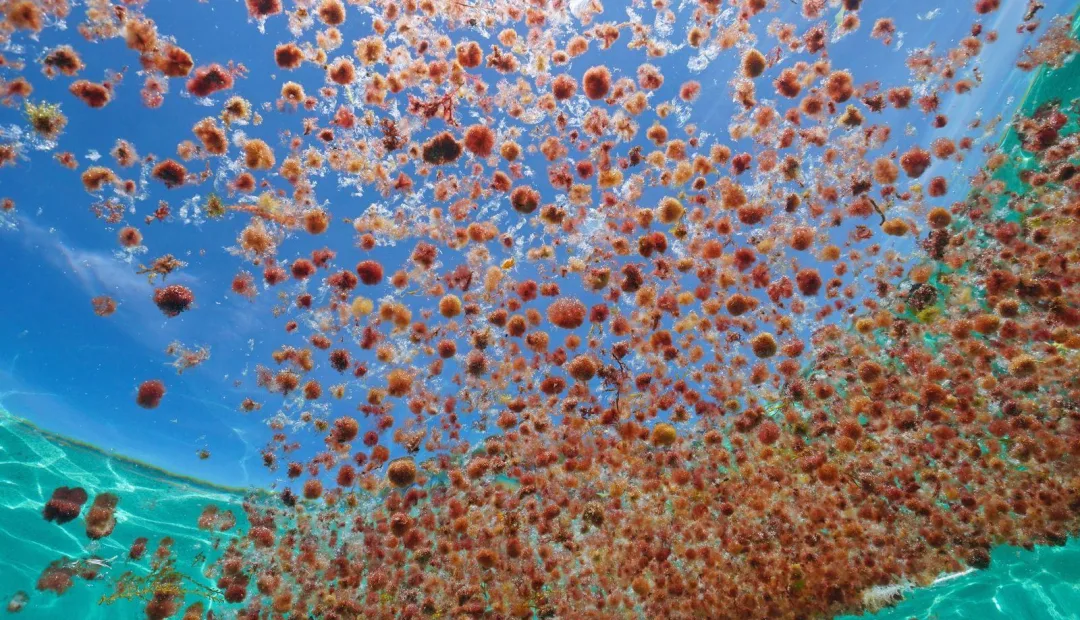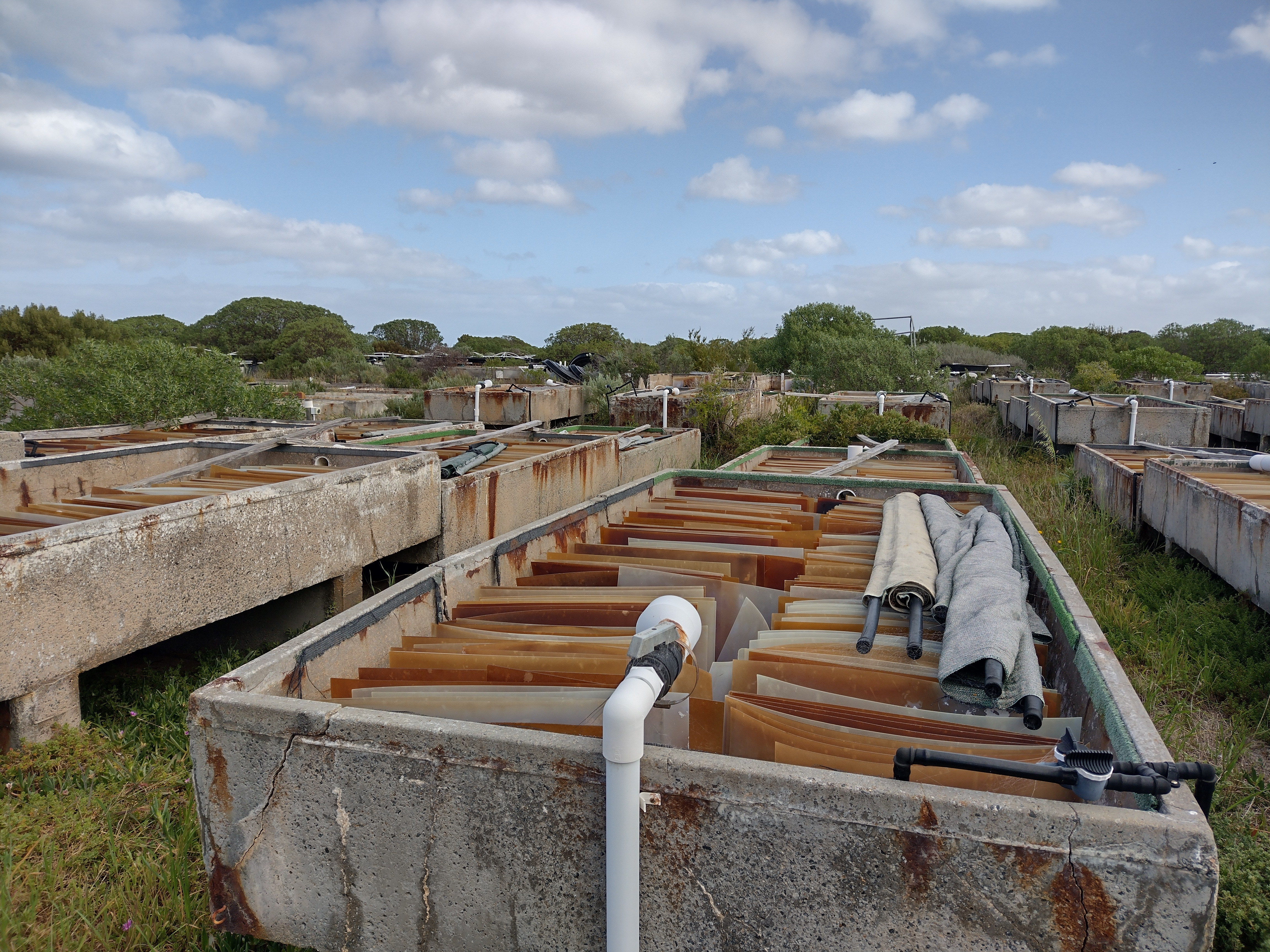Published:
Author:
The Louth Bay EcoPark
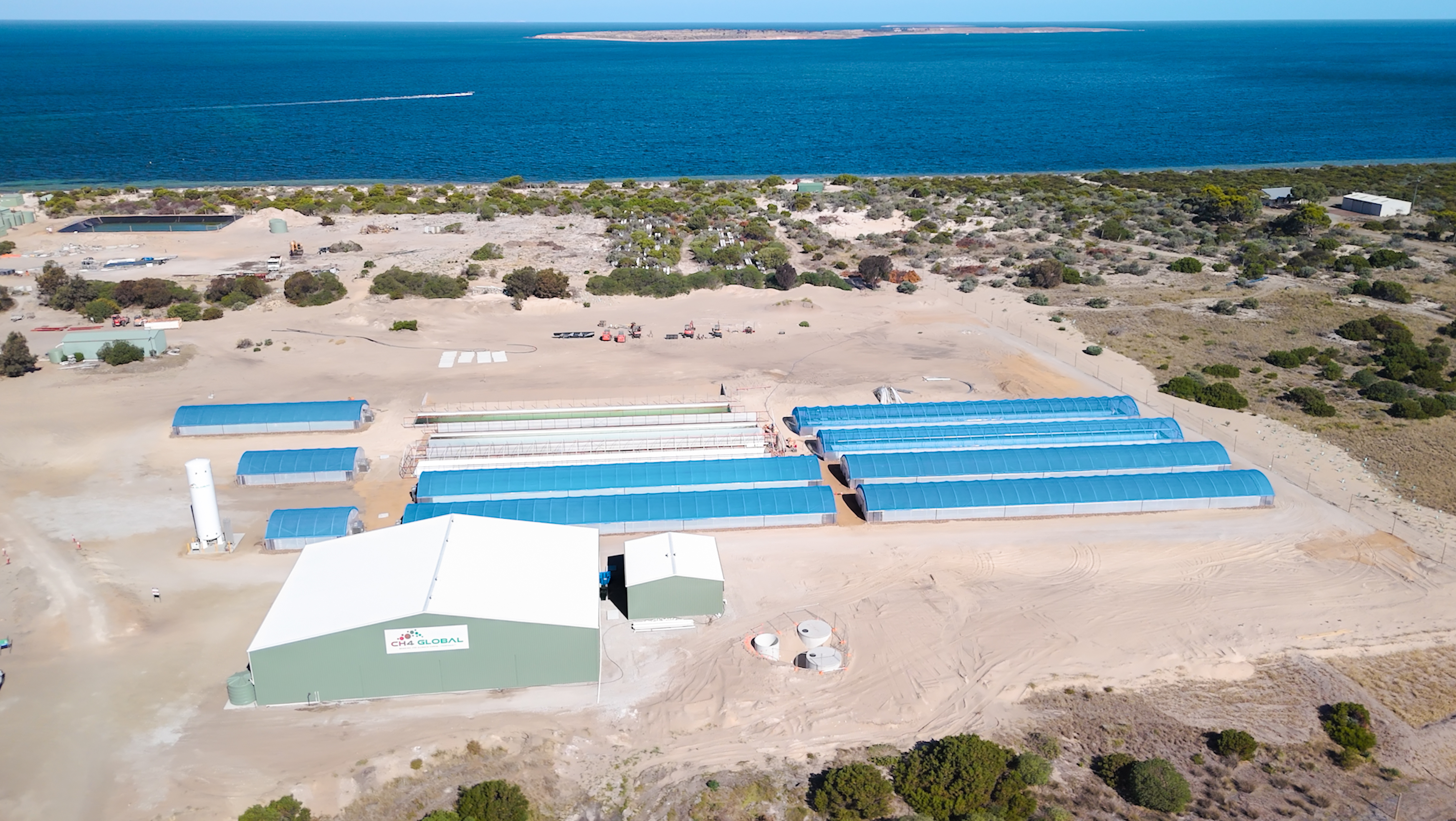
In January 2025, CH4 Global officially opened the EcoPark at Louth Bay 23km north of Port Lincoln.
The EcoPark consists of research and development facilities, a seedling hatchery, patented in-land growth ponds, and harvesting and drying technologies to convert Asparagopsis into CH4 Global’s food supplement products – allowing end-to-end production.
CH4 Global has begun to incubate, grow and process Asparagopsis seaweed in 10 large-scale cultivation ponds with a combined capacity of 2 million litres, capable of producing 80 metric tonnes of the seaweed each year.
Over the next year, the facility aims to expand to 100 ponds capable of producing enough Asparagopsis to serve 45,000 cattle per day – a significant step toward meeting demand from CH4 Global's existing commercial partners in Australia and beyond.
With additional investment, the facility could eventually expand to 500 ponds capable of producing enough Asparagopsis to serve hundreds of thousands of cattle per day.
How Asparagopsis seaweed reduces methane production in cows
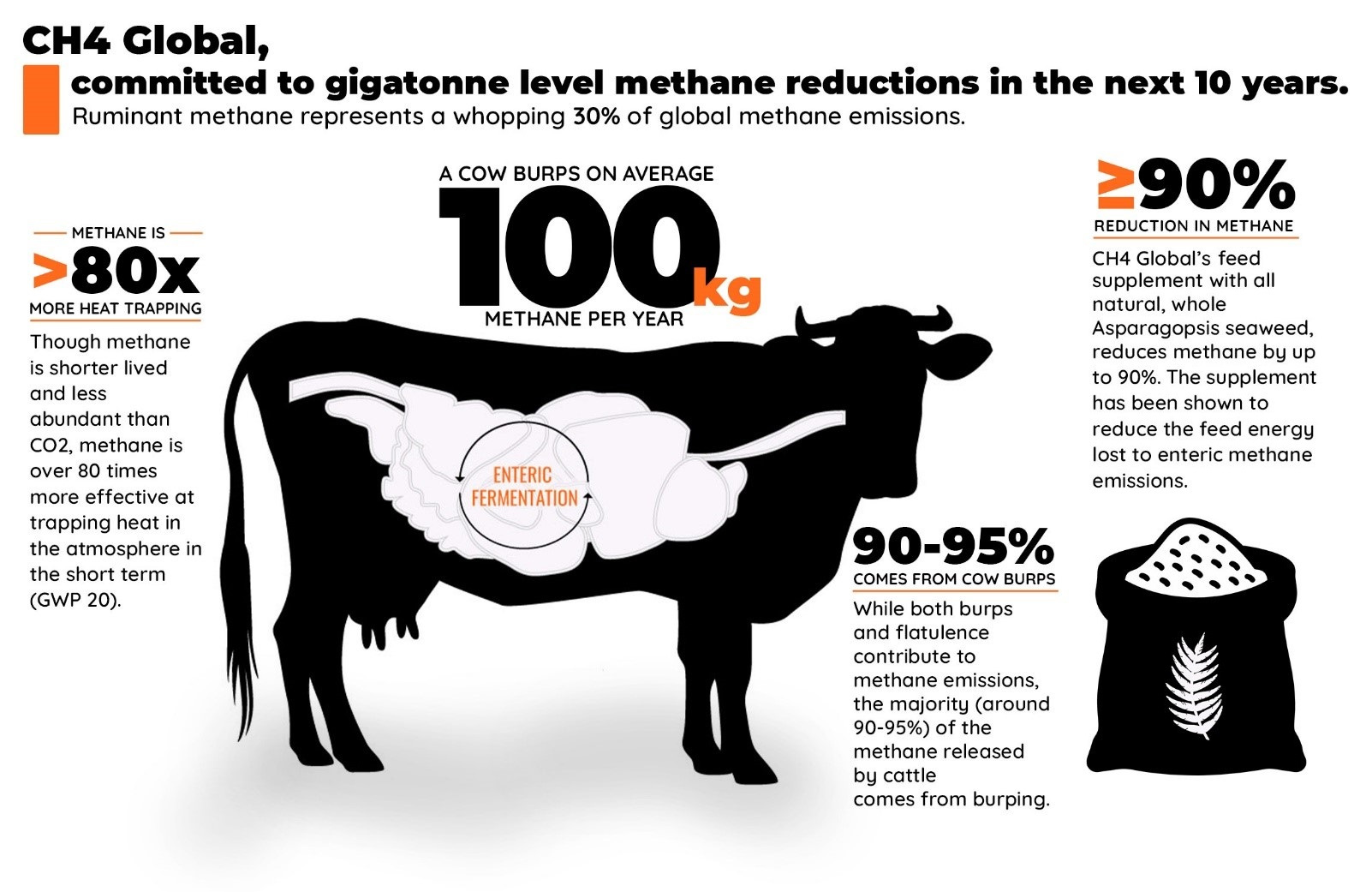
CH4 Global grows Asparagopsis – a seaweed native to southern Australia. When fed to cows Asparagopsis
prevents methanogenesis - the chemical reaction in a cow’s rumen which produces the methane in their burps.

Asparagopsis is grown in 50-metre, in-ground ponds at Louth Bay. The deep, burgundy-coloured seaweed is then freeze dried to produce the feed supplement which is provided to feedlot cattle producers. The feed supplement reduces methane by up to 90 per cent. It also reduces the amount of energy expended by the cows while digesting feed, which means increased production for the cattle industry.
To make a difference, cows only need to eat a tiny amount of Asparagopsis each day – constituting as little as 5 per cent of their daily feed, to cut their methane emissions significantly.
Reducing methane is an important step in climate change mitigation. Over a 20-year period, methane is 80 times more effective at trapping heat in the atmosphere than carbon dioxide (CO₂). Thirty per cent of the world’s methane emissions emanate from over 1.5 billion cows around the globe, which is equivalent to 12.9 gigatonnes of manmade CO₂ emissions annually.
CH4 Global has committed to preventing the creation of one gigatonne of CO2 emissions by 2032. To do so, CH4 Global needs their feed supplement to reach 150 million cattle -10 per cent of the world’s total.
Site Rehabilitation
In early 2024, CH4 Global began cleaning up a 14ha site formerly used as an abalone farm at Louth Bay. This involved the removal of old farming infrastructure and weeds to enable the construction of an extensive EcoPark that would be used to culture Asparagopsis seaweed in tanks and then patented in-ground ponds of up to 50m in length.
CH4 was keen to ensure the removal and disposal of infrastructure was undertaken sustainably and to date, CH4 Global has:
- Removed 5,000 tonnes of concrete tanks - crushed and recycled;
- Removed 11.76 tonnes of HDPE to be recycled in Adelaide;
- Cleared 10 tonnes of plastic aquaculture trays and other plastic equipment for filtering water and other purposes, which have been rehomed and reused within the community;
- Sent 5 tonnes of steel to recycling.
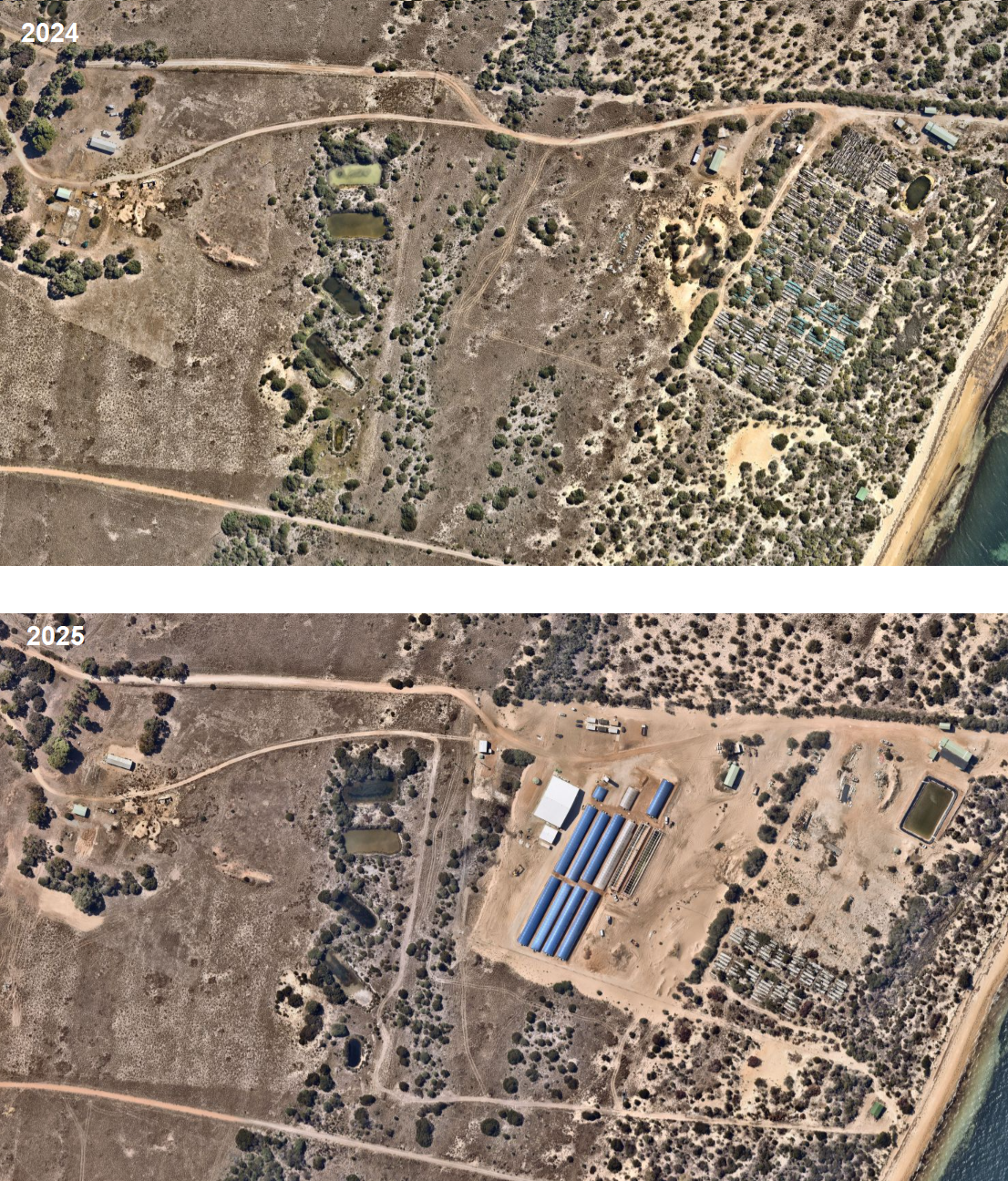
In addition, CH4 has worked collaboratively with the local Barngarla community to clear the site and remove weeds along with undertaking an intensive program to rehabilitate the surrounding land. Working in conjunction with the local Barngarla community, CH4 Global is planting native species sensitive to the sandy and often windy environment, to return the coastal strip to its original beauty while also providing a gathering place.
CH4 Global has also thrown the international spotlight on Louth Bay and the Eyre Peninsula region by showing that biodiversity can not only be restored, but celebrated in collaboration with supporting a new industry that will help mitigate emissions of greenhouse gas which contributes to climate change.
Several international partners have already visited the site including from Japan, South Korea, New Zealand, the US and the UK.
A number of agencies and businesses been involved in the development of CH4 at Louth Bay:
- Department for Transport and Infrastructure
- Department for Primary Industries and Regions, South Australia
- South Australian Research and Development Institute
- The Environment Protection Authority, South Australia
- The Australian Sustainable Seaweed Alliance
- The Fisheries Research and Development Corporation
- Future Feed
- District Council of Cleve
- District Council of the Lower Eyre Peninsula
- Regional Development Australia Eyre Peninsula
- Kasandi
Further reading
Link to website: https://ch4global.com/
Links to media releases:
https://ch4global.com/2025/01/30/production-begins-at-ch4-globals-first-full-scale-ecopark/
